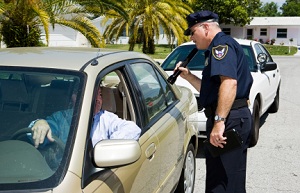Singer Bobby Brown faces multiple charges after a traffic stop led to a DUI (driving under the influence) arrest. According to an MSNBC news report, Brown was arrested in Los Angeles. Officials pulled Brown over for talking on a cell phone while driving when they began to suspect he had been drinking. According to the report, Brown failed a CA field sobriety test and was booked at the Van Nuys jail. He has a prior drunk driving conviction on his record and he now faces three misdemeanors for the incident that could result in up to a year in jail.
A number of questions arise whenever a DUI arrest results from a CA field sobriety test. How many tests were given? Was the arresting officer qualified to perform the tests? Were the tests given on a flat and even surface? Was the driver suffering from any medical conditions that may have affected the test? Was he properly notified of his rights? Was a breath test performed at the site? When was the last time the Breathalyzer was calibrated?
There are ample opportunities for mistakes to be made during a DUI traffic stop. It is important that the rights of the driver are not violated and that wrongful charges do not result in a conviction. In addition, the penalties for repeat DUI drivers can be severe. Therefore, it is crucial for drivers to seek the guidance of a skilled DUI defense attorney before discussing the details of the incident with the authorities.
 California Criminal Defense Attorneys
California Criminal Defense Attorneys


 A new California bill introduced by Assemblywoman Norma Torres, D-Chino, aims to make it a crime to drive with any level of marijuana in your blood or urine. According to a news report in The San Gabriel Valley Tribune, this is a controversial bill because marijuana can remain in your blood stream for up to 30 days. Torres says that the bill is important because we currently do not collect data involving collisions resulting from marijuana use. Unfortunately, individuals who are not impaired but who may have used marijuana in the last 30 days may face a
A new California bill introduced by Assemblywoman Norma Torres, D-Chino, aims to make it a crime to drive with any level of marijuana in your blood or urine. According to a news report in The San Gabriel Valley Tribune, this is a controversial bill because marijuana can remain in your blood stream for up to 30 days. Torres says that the bill is important because we currently do not collect data involving collisions resulting from marijuana use. Unfortunately, individuals who are not impaired but who may have used marijuana in the last 30 days may face a 